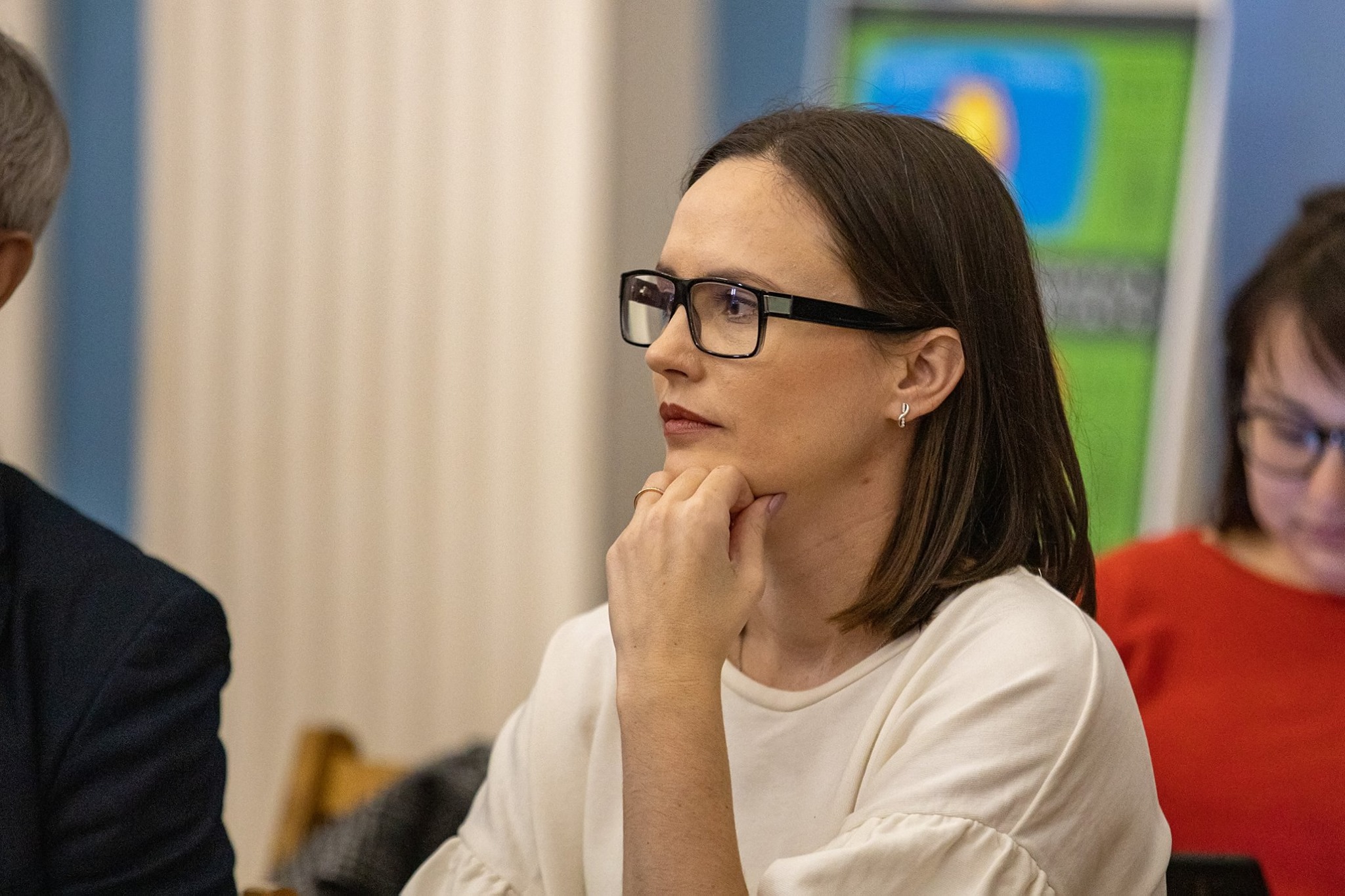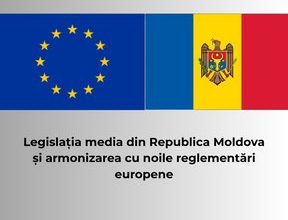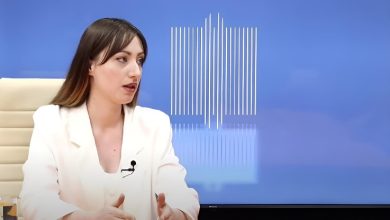Lawsuits as a Form of Intimidation of Journalists

Liuba Sevciuc, journalist
CU SENS Media Project
Lawsuits initiated against journalists in the Republic of Moldova are currently one of the most widespread methods of intimidating them, especially in case of those who practice investigations. Why could investigative journalists be sued? We can only provide the following answer: to intimidate them and to make them abandon their job, to find out their sources, to delete the investigation from the media’s website, etc. Are investigative journalists scared of such lawsuits? I prefer thinking they aren’t; nevertheless, such situations generate enormous pressure on the journalists and the newsrooms they work for. They imply years spent while going to the courts, money spent on attorneys’ fees, and lots of stress and discomfort. For independent media newsrooms in Moldova which survive only due to the support from their development partners, such expenses are too enormous to bear. Newsrooms typically have limited budgets and hardly manage to cover their basic expenses.
Six Trials in Just Two Months
In September and October 2021, we, the CU SENS newsroom, were involved in six lawsuits simultaneously. It was quite a shock, especially since we had no money for legal services.
How exactly did it happen? On September 21, 2021, we published an investigation titled “Partnership of Private Interests,” which described the way three public and private partnerships had been implemented in Chisinau Municipality. The investigation was also based on a report by the Accounts Chamber, which, following an audit, had detected several irregularities at the stage of signing and implementing these partnerships. The list of three public and private partnerships covered in the investigation included the Da Vinci private lyceum. Shortly after publication, we received four preliminary lawsuits from four plaintiffs; PI “Da Vinci” Lyceum, Guzun V.E. SRL – the founder of the lyceum, Valeriu Guzun – the founder of Guzun V.E. SRL, and Ion Guzun, the father of Valeriu Guzun. The four plaintiffs sued the CU SENS newsroom and its founders, as well as the reporter who had conducted the investigation. Hence, we had four trials regarding the same case.
Shortly after that, on October 25, 2021, we published an investigation titled “Things Go Wrong with the Digital,” in which we demonstrate how hastily during the pandemic, the Ministry of Education spent about 70 million lei to purchase laptops necessary for children’s remote education, and many of these laptops had not been used. The investigation also reveals that a large share of the allocated amount was spent by the ministry within the framework of a single public procurement won by Accent Electronic SRL founded by Vladimir Russu associated with the fugitive politician Vladimir Plahotniuc. Vladimir Russu was displeased with the investigation and sued the entire newsroom. We received a similar lawsuit from his company, Accent Electronic SRL.
The fact that they sued us both as individuals and as a legal entity, both the reporters and the founders, as well as the newsroom, causes reasonable suspicions that these lawsuits were abusive and reprsented a coordinated attack aimed at hindering our work: this phenomenon is internationally known as SLAPP (Strategic Lawsuit Against Public Participation).
How Did We Proceed?
At that moment, CU SENS did not have a budget intended for such legal services. In spite of that fact, we still needed to hire attorneys to represent us in court. We addressed our development partners to get some assistance. The Independent Journalism Center hired a lawyer to represent us during one of the lawsuits. The rest of the expenses were covered by us with the support of Equal Rights and Independent Media (ERIM) and Lifeline through the intermediary of Freedom House.
We learned that lesson, and for the following years, we assigned a certain amount of money for legal services for every project we implemented. Subsequently, we were sued by some of the protagonists of our investigations; before that, they had never been so concentrated and so many at the same time. But we were better prepared for such situations.
Trials typically last for years and involve psychological pressure and stress for the entire newsroom. For this reason, qualified lawyers’ assistance in such cases is imminent. In this way, the pressure is taken off the newsroom’s shoulders, and they can entirely focus on their work, documenting and covering the topics of public interest.
Unfortunately, there are few lawyers specialized in the sphere of media in Moldova. Probably they regard this sector as unattractive, and it makes it difficult for us to be defended in court. From our own experience, I could say that some lawyers we have worked with were unaware of the particularities of our job and suggested using defense strategies which did not comply with journalistic values and deontology. It should be kept in mind that a journalist’s activity is based on facts instead of personal opinions. A journalist will always keep sources confidential, even if it involves a risk of losing a lawsuit.
To be able to win a lawsuit, journalists need to publish well-documented materials, to be armed with facts, and to stay permanently focused on the quality of their work. Therefore, any material published by the CU SENS investigative journalist team necessarily goes through the fact-checking stage at the newsroom. In other words, all the information we publish is confirmed by the evidence obtained from several official sources, and anonymous or unofficial sources are carefully verified using such journalistic techniques as requests for information, interviews, databases, etc.
Some Lawsuits Are Still to Be Examined
In a few months, it will be three years since we got involved in a lawsuit; some lawsuits are still pending and are only at the court of original jurisdiction. As to the three files two of which were merged, i.e. those initiated after publishing the “Partnership of Private Interests” investigation, we won the case.
Lawsuits could especially discourage inexperienced journalists from working in this sphere. The euphoria following a successful investigation can quickly be shattered by a lawsuit where plaintiffs demand millions from you to recompense for damages. Young journalists should realize that lawsuits are part of their job, and they should not feel intimidated. In a democratic state, every person has the right to file a lawsuit. The protagonists of our investigations enjoy this right, too.
Anti-SLAPP Legislation
At the European level, there are legal tools for protecting journalists against SLAPP. On February 27, 2024, the European Parliament adopted an anti-SLAPP directive known as Daphne’s Law: it is named after investigative journalist Daphne Caruana Galizia from Malta who was assassinated in 2017 and was involved in more than 40 trials at the moment of her death. On March 19, 2024, the European Council adopted a similar legislative act. Hence, an abusive lawsuit can be dismissed by the court, and this approach saves media outlets from the stress and large amounts of money spent during trials.
In the Republic of Moldova, the legislation in this regard should be amended, too. One of the recommendations included in a study recently published by the Legal Resources Centre from Moldova concerns supplementing the Law on Freedom of Expression with provisions which make it possible to detect the SLAPP nature of a lawsuit at the stage of preparing a case for examination and to reject it instead of examining it.
This analysis is made possible by the generous support of the American and British people through the United States Agency for International Development (USAID) and UK. The contents are the responsibility of IJC and do not necessarily reflect the views of UK, USAID or the United States Government.




